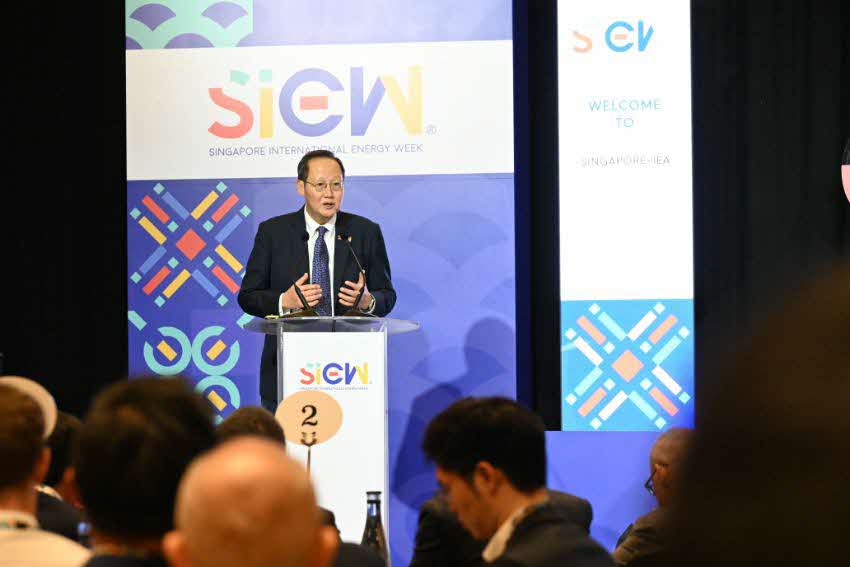IEA recognises SE Asia's growing influence in global energy trends and reveals plans to establish a regional centre in Singapore.

Dr Tan See Leng, Minister for Manpower and Second Minister for Trade and Industry, set the tone for the Singapore-International Energy Agency (IEA) Forum with a compelling emphasis on the pressing need to build upon collective efforts in the energy transition. Following his Welcome Remarks, Mary Burce Warlick, Deputy Executive Director, IEA, delivered the Opening Remarks.
Pursuing net zero commitments
The journey to net zero commitments requires substantial investments in clean energy and grid infrastructure enhancements to accelerate the deployment of renewables and emerging energy technologies.
In this regard, Singapore has made significant strides, successfully deploying 1 gigawatt-peak (GWp) of installed solar capacity in the first half of 2023, surpassing the halfway mark to Singapore's 2GWp target by 2030. Additionally, Singapore lays claim to Southeast Asia's the largest Energy Storage System, with a capacity of 285 megawatt-hour (MWh) to effectively address solar intermittency.
Fostering innovation in low carbon technologies
Singapore's commitment to advancing clean energy and low carbon technologies is supported by an allocation of over S$180 million from Research, Innovation, and Enterprise funds through the Low Carbon Energy Research (LCER) programme. This funding supports critical research areas such as carbon capture, utilisation, and storage (CCUS), and low carbon hydrogen.
The imperative for collaboration and interconnectivity
Dr Tan emphasised that the push to collectively address climate change is now shining a spotlight on the role of interconnectivity and energy trade. As regional interconnectivity can provide greater energy security and resilience for the region, Singapore is actively collaborating with its regional partners to advance the development of an ASEAN Power Grid.
IEA’s Regional Centre nearing completion in Singapore
Following Dr Tan's Address, Ms Warlick stressed the significance of ASEAN as a pivotal player in the global energy landscape. "The region must and will remain a key partner to the IEA's mission in tackling global energy security and transition challenges." She added that with its rapid economic development, ASEAN is posed to wield considerable influence in the global energy transition and trends.
Ms Warlick also highlighted that in the next 25 years, Southeast Asia is projected to expand its electricity capacity to match that of the European Union's, as well as triple the number of cars on the road, and increase clean energy investments by a factor of seven.
She disclosed that IEA's shared vision with Singapore for establishing an IEA regional centre serving the Asia-Pacific region, based in Singapore, is nearing completion.
Follow us on X (formerly Twitter) and Telegram to get the latest updates.